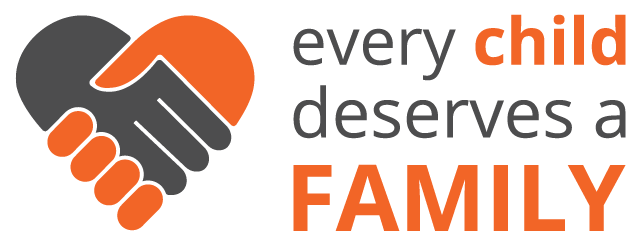ABOUT HHS PROPOSED LICENSE TO DISCRIMINATE
RULE
What is the proposed rule and what does it do?
In 2016 the Obama Administration updated the rules that govern non-discrimination for recipients of Health and Human Services (HHS) grants. That rule – which underwent the required notice and comment period – provided that “it is a public policy requirement of HHS that no person otherwise eligible will be excluded from participation in, denied the benefits of, or subjected to discrimination in the administration of HHS programs and services based on non-merit factors such as age, disability, sex, race, color, national origin, religion, gender identity, or sexual orientation.”
On Friday, November 1, 2019—the first day of National Adoption Month—the Trump Administration released a Notice of Proposed Rule Making (NPRM) saying that it would remove all those protected categories that are not explicitly listed in a statute passed by Congress. The proposed rule, and an accompanying notice of non-enforcement of HHS nondiscrimination policy effective immediately, allows discrimination in a broad array of federally-funded health and human services programs including child welfare programs based on religion, sex, sexual orientation, and gender identity.
What programs will this proposed rule affect?
The proposed rule removes nondiscrimination protections for nearly all HHS health and human services grants and contracts worth over $500 billion — including foster care, child care, Meals on Wheels, after school programming, elder abuse prevention, and more — services that all of our families need to survive and thrive. Therefore, unless a program-specific federal law or state/local government or agency policy prohibits such discrimination, health and human services agencies and contractors receiving federal funding are free to discriminate against LGBTQ people and continue to receive taxpayer funding.
As a consequence, child welfare agencies that discriminate will continue to do so with impunity and it is possible that other agencies (which operate in states without their own non-discrimination requirements) will start to discriminate against LGBTQ families, children, and individuals, as well as religious minorities.
How will this proposed rule affect our families?
The net impact of this proposed rule change will be to turn away qualified prospective parents based on their religion, sex, sexual orientation or gender identity—limiting the pool of homes available to the 440,000 children in foster care (20,000 of whom will age out without finding a forever family) and leaving them to:
· remain in care longer than they need to;
· be placed in, or remain in, congregate care;
· be placed in a non-affirming home;
· age out of the system without finding a permanent placement;
· and more.
Youth in foster care who identify as LGBTQ, or are of a different faith or have no religious beliefs could also be harmed by not finding accepting, affirming families who will love them for who they are and respect their identities. Over 1 in 5 youth in foster care identify as LGBTQ.
In short, the proposed rule wrongly puts the personally-held beliefs of child welfare service providers above the needs of the most vulnerable children in America—children who have been separated from their families of origin and are entrusted to the state for care, stability, and safety. When the state contracts with child welfare service providers to find foster and adoptive families for children, these providers act in the place of the government and almost always receive taxpayer money to provide services for these children.
Two-thirds of Americans—including a majority of both Republicans and evangelicals—oppose providing taxpayer funding to agencies which refuse to place children with gay or lesbian people. And, leading child welfare organizations (including the Child Welfare League of America, the National Association of Social Workers, the American Medical Association, American Academy of Pediatrics and Voice for Adoption) have endorsed the federal Every Child Deserves a Family Act, which bans discrimination in taxpayer funded adoption and foster care services based on religion, sex, sexual orientation, or gender identity.
What can you do to fight against it?
The opportunity to submit comments has ended, but there are plenty of ways to stand up for our families, including taking our pledge against adoption discrimination, urging Congress to pass the Every Child Deserves a Family Act—which promises to end discrimination in child welfare—, and sharing your story.

